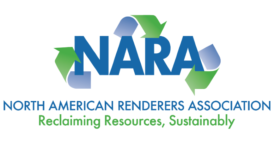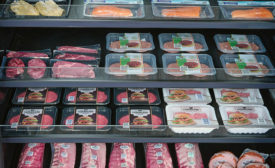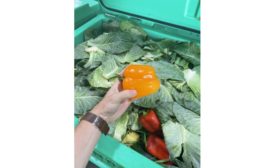Home » Keywords: » food waste
Items Tagged with 'food waste'
ARTICLES
NARA encourages federal agencies to recognize the role rendering plays in reducing the overall food production footprint.
Read More
National Chicken Council highlights industry efforts to reduce food waste
Several current and pending regulatory policies either do or would contribute to food waste in the chicken industry.
Read More
USDA, EPA and FDA release draft strategy to prevent food loss and waste
USDA invites public comments on the draft strategy.
Read More
NARA launches Organics Recycling information campaign
Infographic provides rendering education for the public and government sector.
Read More
Consumers willing to switch to brands that offer better shelf life
98% of those surveyed said they were trying to minimize food waste.
Read More
The market and marketers agree on sustainability
Consumers and corporations alike demand sustainable packaging options.
Read More
Case Study: Moxa solution curtails downtime in food processing plants
Ambassador Controls partners with Moxa to deploy a secure remote access solution.
Read More
WPO recognizes International Day of Awareness of Food Loss and Waste
Day to be recognized on September 29.
Read More
Do Good Foods launches infrastructure platform which aims to eliminate food waste
The first-of-its-kind system is backed by a $169M investment by asset manager Nuveen.
Read More
Get our new eMagazine delivered to your inbox every month.
Stay in the know with The National Provisioner's comprehensive coverage of the meat and poultry processing industry.
SUBSCRIBE TODAY!Copyright ©2024. All Rights Reserved BNP Media.
Design, CMS, Hosting & Web Development :: ePublishing




.png?1647275041)




